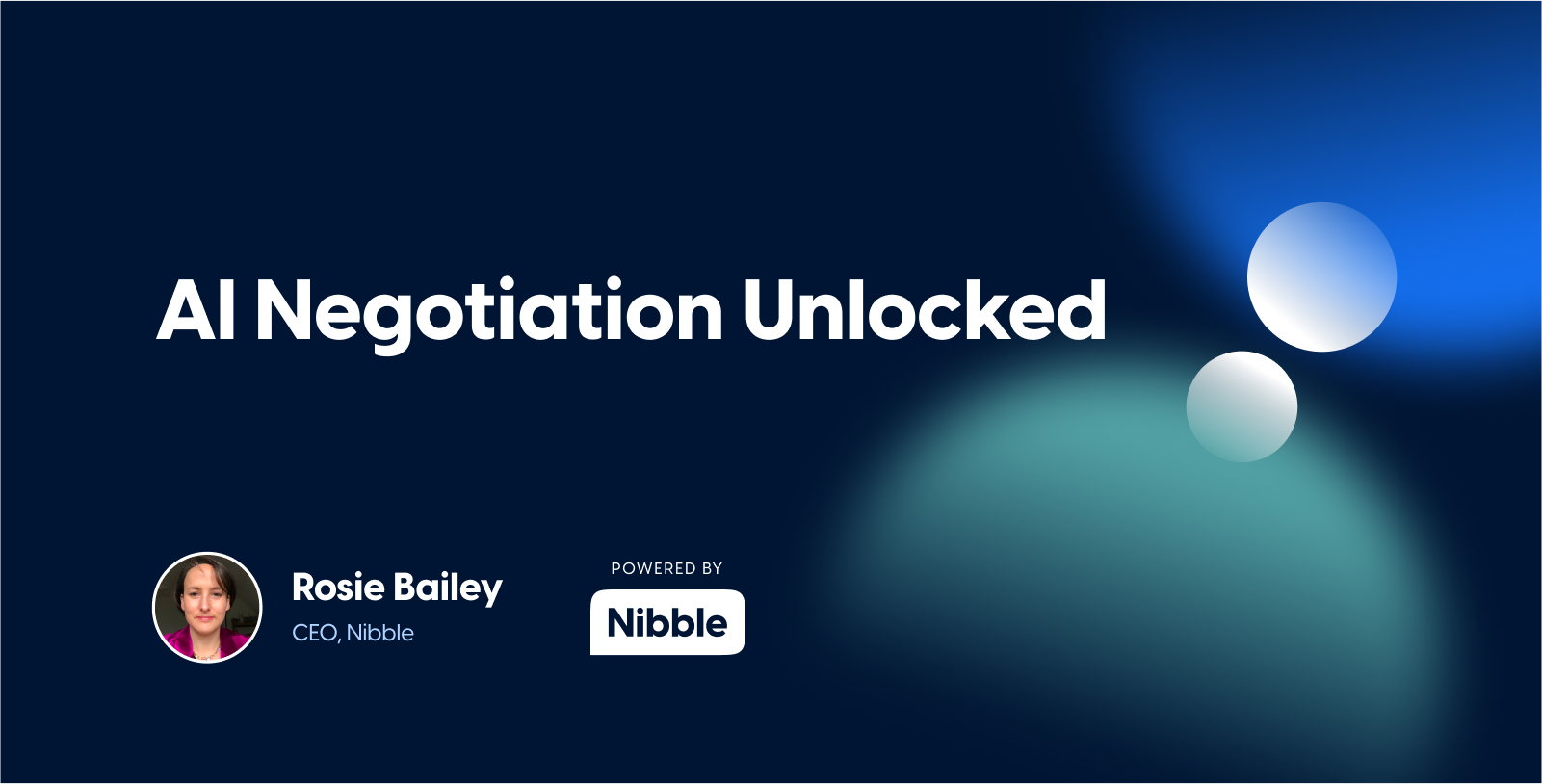
Negotiation in procurement has been stubbornly manual for years – resulting in neglected supplier contracts and tail spend that has gotten out of control. AI Negotiation is changing that.
AI negotiation is redefining how procurement operates. It’s not about replacing people; it’s about rethinking what the function is optimising for. Instead of chasing one-off savings or faster cycle times, procurement leaders are using automation to build consistency, transparency, and long-term value into every supplier interaction.
From tactical tool to strategic layer with AI Negotiation
AI negotiation started as a way to handle volume — small renewals, low-value contracts, and repetitive supplier discussions. Those tasks were ideal candidates for automation. But once the process moved into a digital environment, something bigger happened: procurement teams began to see patterns.
By codifying negotiation logic, procurement teams could measure what worked and where friction lived. They could identify how suppliers responded to different incentives and when escalation rules triggered unnecessarily. What began as tactical automation evolved into a strategic layer of insight.
Instead of chasing efficiency alone, teams could ask better questions: are our thresholds realistic? Which categories have the most pricing volatility? Where do our suppliers consistently push back? AI negotiation shows gives clear, data-led answers to these questions.
Making consistency a commercial strength
Human-led negotiation will always matter, especially for complex or strategic deals. But when every discussion is handled differently, inconsistency creeps in. That inconsistency can erode trust, introduce bias, and make results impossible to benchmark.
AI negotiation brings structure. It applies the same rules every time where appropriate and records every interaction. That means outcomes are predictable, auditable, and easy to explain — internally and externally. For suppliers, it creates a fairer experience.
Consistency is a competitive advantage. When suppliers trust your process, they spend less time second-guessing and more time engaging. That reliability strengthens relationships and positions procurement as a dependable commercial partner rather than a bottleneck.
Autonomous Negotiation data that drives smarter strategy
Every automated negotiation generates structured data that can inform broader sourcing and supplier strategies. Over time, that data becomes one of procurement’s most valuable assets.
You can see how negotiation dynamics shift across categories or geographies. Those insights don’t just improve the system, they improve the humans running it.
Procurement stops being reactive and becomes data-led. Teams can plan based on real behaviour, not anecdotal feedback. They can set policies grounded in evidence, not assumption.
The shift that’s already underway with AI Negotiation
The rise of AI negotiation marks a turning point. Procurement is no longer defined by how efficiently it can manage transactions, but by how intelligently it can manage decisions.
Automation isn’t taking the conversation away from people — it’s giving them better ones to have. It’s moving negotiation from a manual process to a measurable capability, and in doing so, it’s reshaping procurement strategy itself. Better than that, procurement leaders are freed up to focus on the strategic work that really matters to them when they aren’t distracted by the minutia of negotiations they shouldn’t be spending time on.
Find out more from Nibble’s experience negotiating 100,000 times a month here.
Interested in Nibble?
